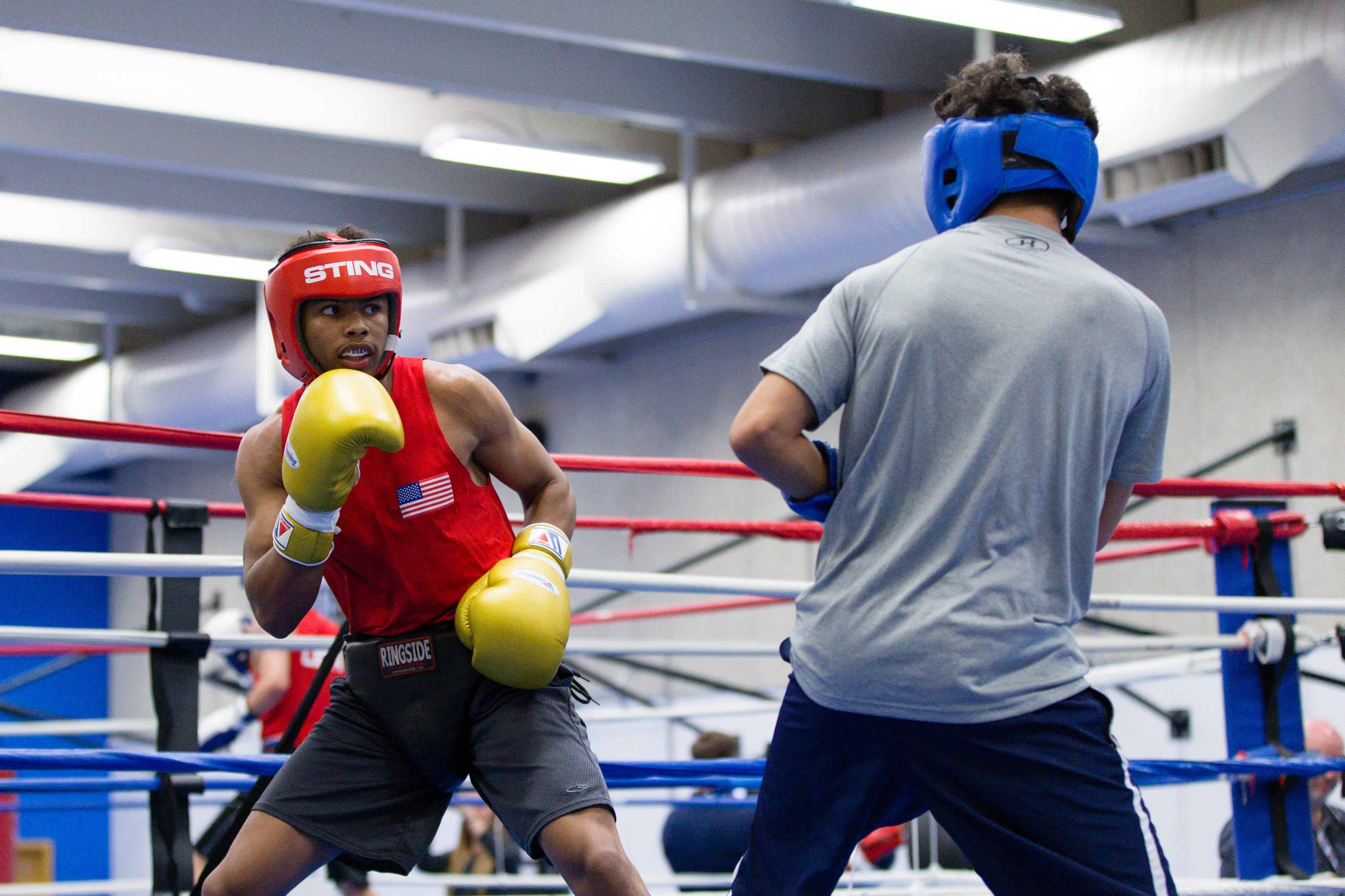Whether it’s in a crushing victory or a rare loss, one thing is guaranteed about boxing prodigy Shakur Stevenson: his infectious smile and ever-present dimples light up his face in the ring.
“What makes him special is his brain, his mentality and how he shows people how to actually have fun in the ring,” said USA Boxing resident coach Kay Koroma, who has worked with Stevenson for about six years. “If you watch him fight, you’ll say, ‘Why does this kid have a grin on his face the whole entire fight? Why is he smiling? I’m trying to knock his head off and this kid is smiling.’”
Behind Stevenson’s smile, the first-time Olympian is oozing confidence — the result of a 23-0 international record, emotional maturity beyond his 19 years and a chip on his shoulder reminding him of his Newark, N.J. roots. One of the youngest American boxers in the Rio Games, Stevenson is poised to land on the medal stand as a bantamweight, aiming for Team USA’s first gold medal won by a male boxer since 2004.
In the ring, the 5-foot-8 123-pounder’s signature is adaptability, fighting according to his opponent. Within the first 10 seconds of a match, he now can dissect his challenger’s strategy after years of sparring with older and more experienced boxers.
Named after the late rapper Tupac Shakur, Stevenson — who’s preparing for Rio at the Olympic Training Center in Colorado Springs — relishes the spotlight. Although the average age of the last five bantamweight gold medalists is about 23, the amateur fighter is eager to prove it’s just a number.
![Patriots' Nate Ebner hoping to reach Olympics with Team USA's rugby squad [oembed : 87126460] [oembed : 87126460] [oembed : 87126460] [oembed : 87126460] [oembed : 87126460] [oembed : 87126460] [oembed : 87126460] [oembed : 87126460]](/Portals/_default/Skins/PrestoLegacy/CommonCss/images/smartembed.png)
“I love being in the ring and showing everybody my skills and what I can do,” Stevenson said. “I’m looking forward to proving to everybody (wrong) who thinks I’m not that good or I’m not supposed to be on that level just because I’m young.”
He was first introduced to the sport at age 5 watching the fighters at his grandfather’s local boxing club and thought they were “mad cool.” His grandfather, Wali, Moses, was his first coach.
In the same way those boxers inspired him, Stevenson hopes to be a role model for his siblings. As the oldest of nine, he strives to show them how hard work opens the door for opportunity. He’s headed to Rio as the 2014 Youth Olympic gold medalist and a 2014 youth world champion.
“He really didn’t need any motivation once he got into boxing because it was something he had to do,” said Moses, who continues to coach Stevenson. “He knew that he wanted to do something besides be a kid on the streets of Newark, so he made extra (efforts) to make sure that he wasn’t.”
Before Stevenson can realize his gold medal dream, he’ll have to overcome a new challenge for Olympic boxers. Last month, the International Boxing Association voted to let the professionals compete in Rio, but he believes he has a strategic advantage since most pros are used to longer fights up to 12 rounds. The newcomers have added to his motivation to win, knowing Olympic boxing will get more attention.
“If the pros come onto our turf, it’ll be a different story,” Stevenson said. “They’ve got to get adjusted to three rounds, they’ve got to get adjusted to weighing in every single day, and honestly, I feel like any pro that’s in the ring with me, I’m going to kick his (expletive).”


![2016-7-15-shakur-stevenson [image : 87126156]](http://www.gannett-cdn.com/media/2016/07/15/USATODAY/USATODAY/636041769910955158-USP-OLYMPIC-PREVIEW-OLYMPIC-TRAINING-CENTER-MEDIA-82161536.JPG)
![2016-7-15-shakur-stevenson-youth [image : 87126422]](http://www.gannett-cdn.com/media/2016/07/15/USATODAY/USATODAY/636041771264575835-GTY-454243578-66760944.JPG)
